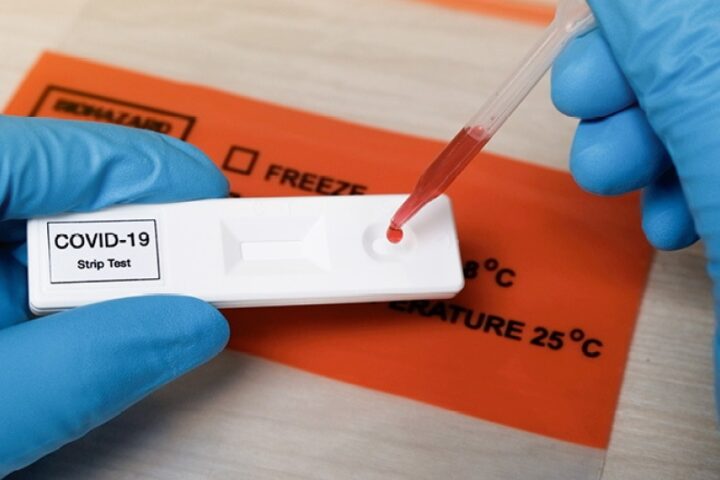COVID-19, the respiratory illness caused by the coronavirus, has been related to various health problems and issues. One concerning area of impact is the potential link between this virus and brain damage. This article aims to explain the connection between the coronavirus disease and brain damage and highlight the role of COVID testing in London in managing the virus. Along with this, we also discuss the side effects of not getting STI testing. Regular monitoring of sexually transmitted infections is crucial for maintaining sexual health. Failing to do so can have serious consequences, including the risk of undetected infections and potential long-term issues like cancer.
Firstly, let’s discuss the connection between corona infection and brain damage.
The Connection Between COVID-19 and Brain Damage:
Corona infection can affect the brain in several ways, possibly leading to brain damage. Here are some key aspects to consider:
a. Neurological Symptoms: Firstly, some individuals with corona infection experience neurological symptoms such as headaches, dizziness, and confusion. These symptoms suggest that the virus may directly affect the brain and nervous system.
b. Inflammation and Blood Clots: Furthermore, this virus can cause inflammation in blood vessels throughout the body, including those in the brain, can also be the side-effect of coronavirus. Moreover, this inflammation and the high risk of blood clots can restrict blood flow and oxygen supply to the brain, resulting in potential damage.
c. Encephalitis and Stroke: In severe cases, this disease can lead to encephalitis (inflammation of the brain) or stroke. These conditions can cause lasting brain damage and may have long-term consequences for cognitive function and overall health.
Importance of COVID Testing:

Screening for corona plays a crucial role in managing the virus’s spread and finding infected individuals. Here’s why the monitoring for corona is crucial:
a. Early Detection and Treatment: Examination allows for the early detection of infections. Identifying cases enables medical professionals to provide timely treatment, reducing the risk of severe illness and potential brain damage.
b. Isolation and Transmission Prevention: Detecting positive patients helps individuals to take necessary precautions to stop the spread of the virus to others, including loved ones and vulnerable populations. Therefore, isolation plans can limit the transmission and potential problems related to the virus.
c. Monitoring and Surveillance: Widespread monitoring helps health authorities monitor the prevalence and spread of corona in communities. This data helps inform public health measures and resource allocation, ensuring the necessary support is available to manage the impact on individuals and the medical system.
d. Contact Tracing: Monitoring is a crucial component of contact tracing efforts. When someone comes positive, their close contacts can also be identified and examined. This step helps break the chain of the virus and prevent further virus spread.
e. Research and Understanding: COVID testing in London provides valuable data for researchers and scientists studying the virus. Examining helps gather information about the virus’s effects on different populations, including the potential impact on the brain. Furthermore, this knowledge helps in an effective treatment and preventive plans and strategies.
Consequences of not getting an STI Test on Time
Undetected Infections:
When individuals are not monitored for sexual infections, they may without intention hide infections without experiencing noticeable symptoms. This condition poses a risk of transmitting the infection to sexual partners unknowingly. Examples of STIs with silent or mild symptoms include chlamydia and gonorrhoea. These infections can go unnoticed without proper monitoring, leading to further spread and potential future problems.
Complications and Long-Term Health Risks:
Undiagnosed and untreated sexual infections can lead to severe health problems. For instance:
a. Pelvic Inflammatory Disease (PID): Untreated chlamydia or gonorrhoea can cause PID in females. PID can lead to chronic pelvic pain and infertility. In addition, it can also become the reason for an increased risk of ectopic pregnancies (outside the uterus).
b. Human Papillomavirus (HPV) and Cervical Cancer: Certain strains of HPV can cause cervical cancer in females. Regular screening, including Pap smears and HPV monitoring, can help detect precancerous changes early and thus prevent the growth and development of cancer.
c. Syphilis Complications: Without timely treatment, syphilis can progress to advanced stages. This disease can affect various organs, including the heart, brain, and nervous system. In addition, serious problems, such as cardiovascular issues, neurosyphilis, and organ damage, can occur due to this condition.
Lack of STI Testing Increases Transmission:
Not getting screened for sexual infection increases the risk of transmitting those conditions to sexual partners and maintains the infection cycle. This cycle leads to a higher prevalence of STIs within the community. Moreover, by not taking the necessary steps to identify and treat infections, individuals accidently contribute to spreading sexually transmitted infections among their sexual contacts.

Lack of Treatment and Support:
Monitoring of sexual infections is a gateway to appropriate medical care and support. When these infections remain undiagnosed, individuals miss out on necessary treatment options and resources to manage their sexual health effectively. This includes medication access, counselling, and guidance on practising safe sex and preventing reinfection.
Impact on Reproductive Health:
Neglecting STI testing can notably affect reproductive health. Undiagnosed and untreated infections can lead to infertility, miscarriages, stillbirths, or complications during pregnancy. Screening during prenatal care is vital to protect the mother and unborn child from potential STI-related complications.
Conclusion:
The link between coronavirus infection and brain damage shows the importance of understanding and managing the virus. The potential impact on the brain, including inflammation, blood clots, and stroke, emphasizes the need for complete care and early detection. COVID testing in London is vital in identifying infections, enabling timely treatment, preventing spread, monitoring the virus’s spread, supporting contact tracing efforts, and contributing to ongoing research. Moreover, prioritizing COVID testing in London can better protect individuals, prevent severe illness, and ease the possible long-term consequences of brain damage. And as for neglecting regular STI testing, the consequences can be far-reaching. Some potential side effects are undetected infections, future problems, increased transmission rates, lack of treatment and support, and adverse effects on reproductive health. It is necessary to prioritize regular screening of sexual infections as a vital part of overall health.




